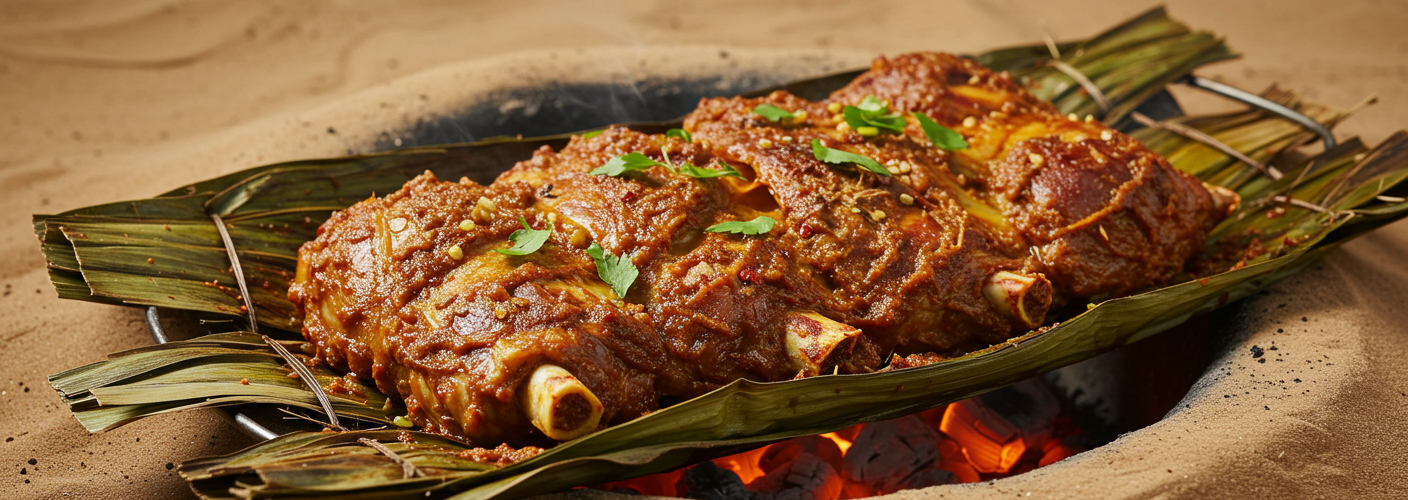Omani cuisine boasts a rich tapestry of flavors and traditions, one of its most celebrated dishes being Omani Shuwa. This exquisite dish features slow-cooked marinated lamb or goat, traditionally prepared with a unique blend of spices that reflect the diverse influences of Oman’s culture and heritage. With its tender meat and aromatic flavors, Omani Shuwa is not just a meal; it’s an experience that brings families and communities together.
At the heart of Omani Shuwa is the preparation of the meat, which involves marinating lamb or goat in an array of spices for a period that can last from several hours to a few days. The marinade typically includes a mix of garlic, cumin, coriander, turmeric, and lemon juice, creating a savory and zesty profile that penetrates the meat deeply. This lengthy marination process is crucial, as it enhances the flavors and tenderizes the meat, ensuring that each bite is both succulent and full of taste.
The traditional method of cooking Shuwa is what truly sets it apart. In the past, Omani families would prepare Shuwa on special occasions such as weddings and festivals. The meat is wrapped in banana leaves and buried underground, where it is slow-cooked in a pit lined with hot stones. This time-honored technique not only infuses the meat with a unique smoky flavor but also ensures it remains moist and tender. The slow cooking process can take up to 24 hours, allowing the spices and flavors to meld beautifully, resulting in a dish that is nothing short of divine.
While modern conveniences have made the preparation of Omani Shuwa more accessible, many still adhere to traditional methods, celebrating the connection to their heritage and the communal aspect of cooking. It is often enjoyed during large family gatherings, where the act of sharing food is as important as the dish itself. When served, Omani Shuwa is typically accompanied by rice, flatbreads, or various side dishes, allowing diners to create their own combinations.
Beyond its culinary appeal, Omani Shuwa carries cultural significance. It represents hospitality, generosity, and the importance of community in Omani life. The act of preparing such a labor-intensive dish signifies a deep respect for guests and a desire to provide them with a memorable meal. Eating Shuwa is often a communal experience, where everyone gathers around the table, sharing stories and laughter, making it an integral part of social gatherings.
In addition to its cultural value, the health benefits of Omani Shuwa should not be overlooked. The slow cooking process allows for the breakdown of collagen in the meat, making it easier to digest and enhancing nutrient absorption. The spices used in the marinade, such as turmeric and cumin, are known for their anti-inflammatory properties and can contribute to overall wellness.
In conclusion, Omani Shuwa is more than just a dish; it is a celebration of Omani culture, tradition, and community. Whether enjoyed in a festive setting or at a family gathering, the tender, flavorful meat tells a story of heritage and the essence of togetherness. If you ever find yourself in Oman or at a restaurant serving Omani cuisine, make sure to indulge in this slow-cooked treasure—it’s an unforgettable experience that captures the heart of Omani hospitality.




Add comment